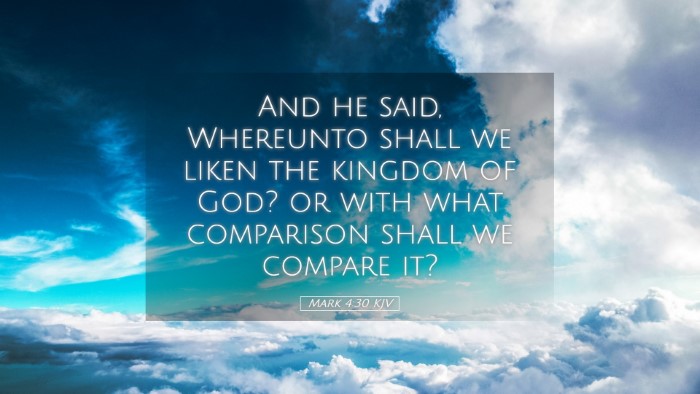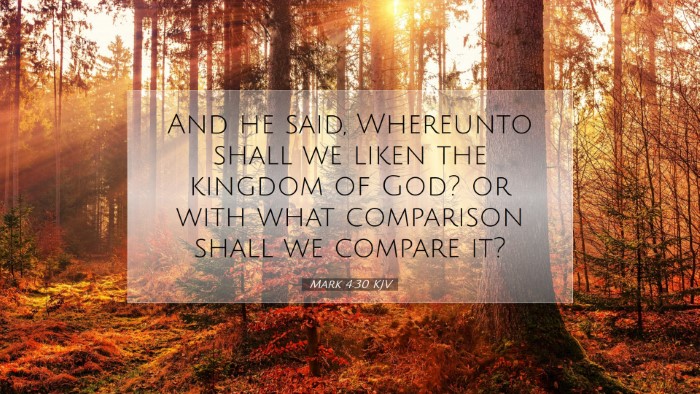Old Testament
Genesis Exodus Leviticus Numbers Deuteronomy Joshua Judges Ruth 1 Samuel 2 Samuel 1 Kings 2 Kings 1 Chronicles 2 Chronicles Ezra Nehemiah Esther Job Psalms Proverbs Ecclesiastes Song of Solomon Isaiah Jeremiah Lamentations Ezekiel Daniel Hosea Joel Amos Obadiah Jonah Micah Nahum Habakkuk Zephaniah Haggai Zechariah MalachiVerse
Mark 4:1 Mark 4:2 Mark 4:3 Mark 4:4 Mark 4:5 Mark 4:6 Mark 4:7 Mark 4:8 Mark 4:9 Mark 4:10 Mark 4:11 Mark 4:12 Mark 4:13 Mark 4:14 Mark 4:15 Mark 4:16 Mark 4:17 Mark 4:18 Mark 4:19 Mark 4:20 Mark 4:21 Mark 4:22 Mark 4:23 Mark 4:24 Mark 4:25 Mark 4:26 Mark 4:27 Mark 4:28 Mark 4:29 Mark 4:30 Mark 4:31 Mark 4:32 Mark 4:33 Mark 4:34 Mark 4:35 Mark 4:36 Mark 4:37 Mark 4:38 Mark 4:39 Mark 4:40 Mark 4:41

